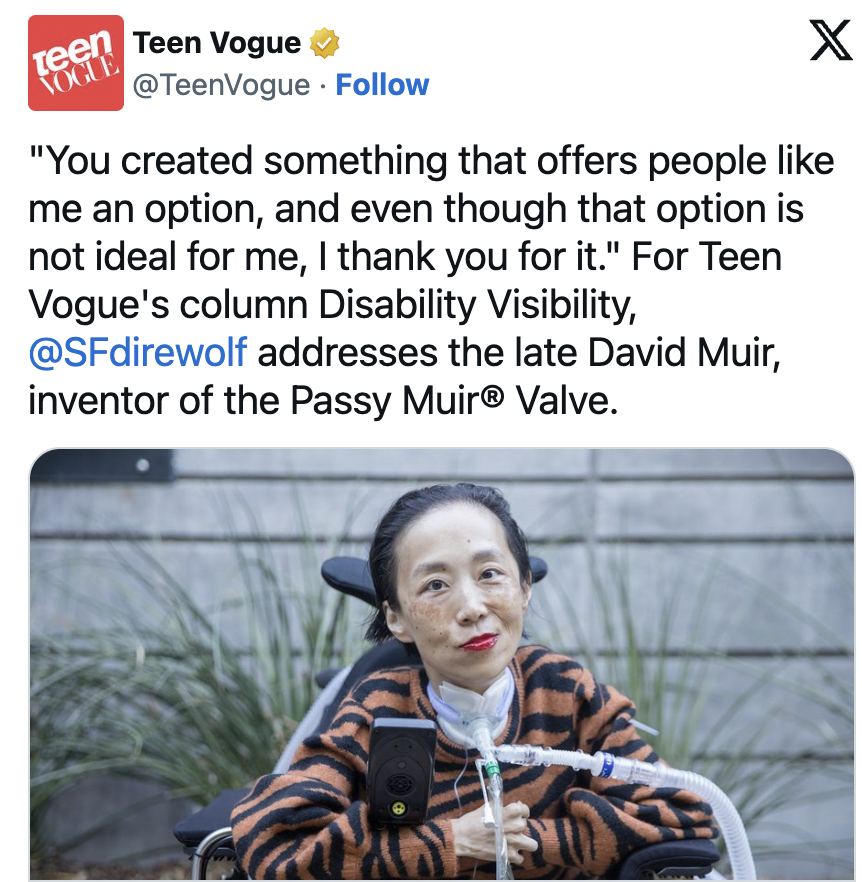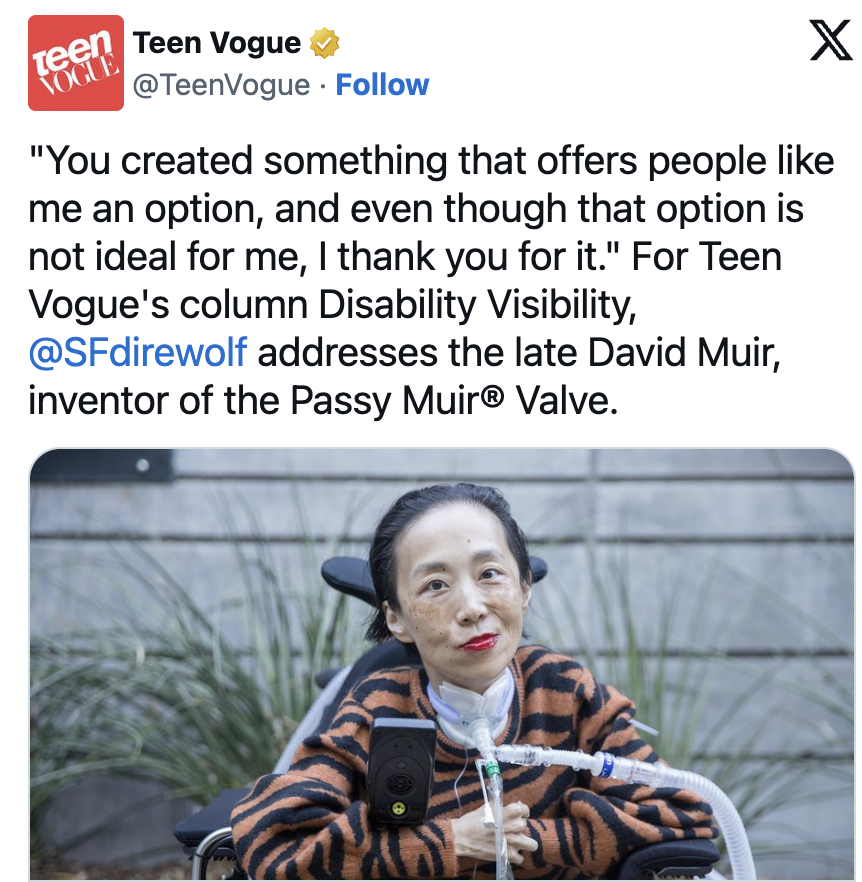The latest stuff from Alice

Hey everyone, just wanted to share a few recent pieces by me!
For #DisabilityPrideMonth, I produced an audio story for my latest Teen Vogue column on the late David Muir, a disabled inventor of Passy Muir® Valve and my attempts to speak again. Text transcript included.

Even if I could have used your valve, though, I knew my voice would never be the same. It seems there’s nothing else I can do but live with this new reality of mine. I was born disabled, but my disability identity has changed radically. I’m now part of the community of nonspeaking people and people who cannot swallow or eat solids. It’s another part of the ever-expanding disabled multiverse within which I leapfrog back and forth....The worlds of speech and silence intersect and overlap. Silence isn’t static or limiting. Silence is not an empty void. Silence has a landscape of its own. Silence has its own dimension, a space that enables another way of thinking and being. There is dignity in all forms of communicating.
For Publisher's Weekly, I wrote an editorial about the need for more disabled people in publishing.
Most people don’t realize how difficult it is to tell your story when it feels like the world doesn’t have space for you. I...wonder what it will take for change to actually happen. What if conversations about DEI go beyond a diversity statement and are reflected in policies and budgets? What if major publishers provided support and infrastructure to people from underrepresented communities who want to be part of this industry? These are some questions the industry must be accountable for if it claims to care about diversity and inclusion.
I believe in the power of storytelling and the perspectives, skills, and expertise of disabled people. In the future, I hope the publishing industry will finally reflect and welcome all of us.
I was interviewed by my alma mater, the University of California, San Francisco where I talked about disability and healthcare.
We don’t need allies; we need co-conspirators. We need people in power to change policies and practices. Budgets are a reflection of values. Why can’t every exam room have a height-adjustable table? Why do deaf patients still struggle to get ASL interpreters or communication access in hospitals? Why are people with intellectual disabilities still underserved by health care professionals? Why is there not enough funding to research long COVID? Why are rare diseases not a priority among researchers? Why are people with disabilities absent in clinical trials?
I would like to see health care professionals speak up and fight for their patients when they see something wrong happening. We also need more disabled people in the medical professions whether they are educators, administrators, technicians or providers.
The issues are complex and often go beyond the clinical setting, but everyone can use their voice and identify systemic problems. That’s a start at least.
Member discussion